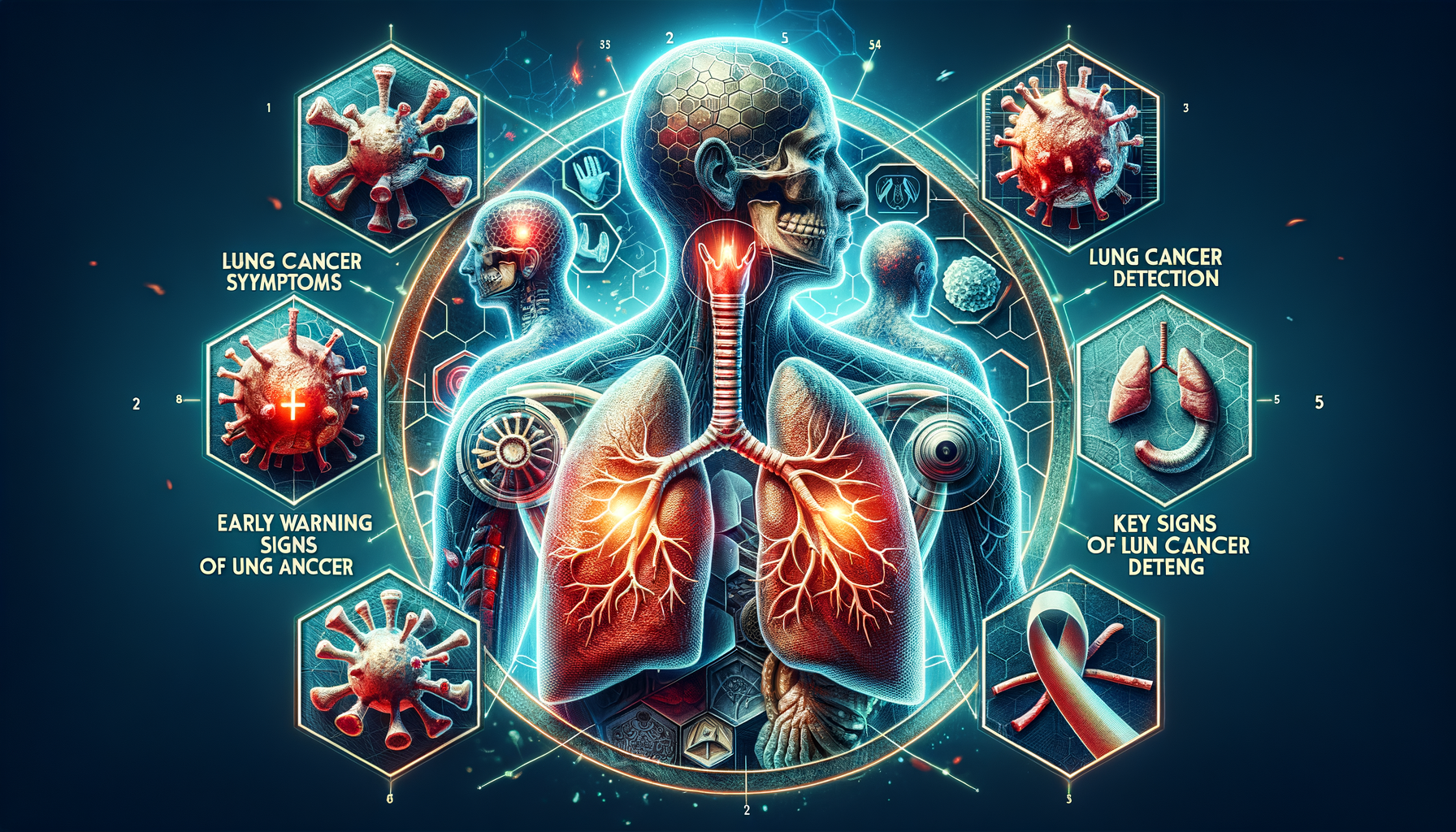Understanding Lung Cancer Symptoms
Lung cancer remains one of the most prevalent and serious types of cancer worldwide. Its symptoms can often be mistaken for less severe conditions, which is why understanding them is crucial. Common symptoms include persistent coughing, changes in voice, and unexplained weight loss. A persistent cough that doesn’t go away or worsens over time is one of the most common signs. Additionally, coughing up blood or rust-colored sputum can be alarming indicators. Shortness of breath, chest pain, and wheezing are also notable symptoms that should prompt immediate medical consultation. It’s important to recognize these symptoms early as they can significantly affect the prognosis and treatment options.
Early Warning Signs of Lung Cancer
Early detection of lung cancer can be life-saving, yet many people overlook the subtle signs. These early warning signs often include persistent fatigue, frequent respiratory infections, and difficulty swallowing. Fatigue can be easily dismissed as a result of a busy lifestyle, but when it becomes chronic, it warrants attention. Frequent respiratory infections such as bronchitis or pneumonia can also signal an underlying issue with lung health. Additionally, shoulder or back pain not related to injury could be a sign of lung cancer spreading to other parts of the body. Being vigilant about these early signs can lead to earlier diagnosis and more effective treatment.
Methods of Lung Cancer Detection
Detecting lung cancer early involves a combination of medical history assessment, imaging tests, and sometimes biopsies. Chest X-rays are often the first step in detecting abnormalities in the lungs. However, CT scans provide more detailed images and are more effective in identifying smaller lesions. For those at high risk, such as long-term smokers, low-dose CT scans are recommended as a screening tool. Biopsies, where a small sample of lung tissue is removed and examined, are used to confirm the presence of cancer cells. These detection methods are critical in diagnosing lung cancer at a stage where treatment can be more effective.
The Importance of Regular Screening
Regular screening for lung cancer is especially important for individuals with a history of smoking or exposure to other risk factors. Screening can detect cancer before symptoms develop, increasing the chances of successful treatment. Studies have shown that regular screenings can reduce the risk of dying from lung cancer by detecting it early. It’s recommended that individuals at high risk, particularly those over the age of 55 with a significant smoking history, undergo annual low-dose CT scans. This proactive approach can lead to early intervention and improved survival rates.
Living with Lung Cancer: Coping and Support
Receiving a lung cancer diagnosis can be overwhelming, but understanding the available support can make a significant difference. Support groups offer a platform for sharing experiences and advice, which can be invaluable for emotional well-being. Additionally, psychological counseling can help individuals and their families cope with the emotional impact of the disease. It’s also important to discuss treatment options thoroughly with healthcare providers to make informed decisions. Lifestyle changes, such as quitting smoking and adopting a healthy diet, can also improve quality of life and treatment outcomes. Accessing a comprehensive support network is essential for navigating the challenges of living with lung cancer.




Leave a Reply